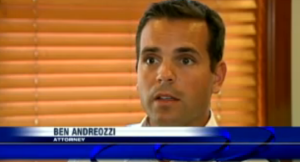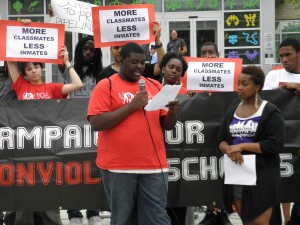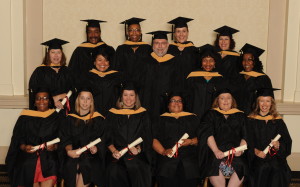News & Announcements
- Details
- Written by Steve Korr, Laura Mirsky
Presented by Steve Korr in a plenary session on August 2, 2012, at the 15th IIRP World Conference, Building a Restorative Practices Learning Network, Bethlehem, Pennsylvania, USA, August 1-3, 2012
- Details
- Written by Joshua Wachtel
I'm having a great time at the conference so far. It's a lively atmosphere with a lot of ideas being exchanged. I'm making new connections as well as reconnecting with old friends.
Laura Mirsky has posted this day-one conference report:
- Details
- Written by Stacey Miller, Christina Olstad
Presented by Stacey Miller in a plenary session on August 1, 2012, at the 15th IIRP World Conference, Building a Restorative Practices Learning Network, Bethlehem, Pennsylvania, USA, August 1-3, 2012
- Details
- Written by joshua Wachtel
Earlier this summer I noted that Martin Wright received an honor at the European Forum for Restorative Justice. Here is a brand new piece by Wright, both timely and perceptive, in which he discusses the banking crisis and how white collar crime might be addressed through the use of restorative justice. In the middle of the piece Wright references John Braithwaite's influential work, Restorative Justice and Responsive Regulation, which lays out the theory and mechanism for an essentially restorative system of government oversight.
- Details
- Written by Joshua Wachtel
 Student activists with Dignity in Schools Campaign Get Creative in How They Express Their Desire for Changes in New York City Schools Discipline PolicyLast week I posted the news that the Michigan State Board of Education was recommending an end to zero tolerance policies in public schools in the state. The trend toward reevaluating these harsh counterproductive policies – which require schools to administer certain kinds of punishments, especially detentions, suspensions and expulsions, as a sanctioned response to specific student discipline code violations – continues and if anything is gaining steam. Recent reports have shown that minority students are disproportionately affected by these policies and are responsible in part for the shift in thinking and policy. Here are clips from three stories reexamining zero tolerance policies across the US. In some cases restorative practices have been offered as an alternative to punitive approaches. The passages below are all quoted text with links to full stories underneath each passage.
Student activists with Dignity in Schools Campaign Get Creative in How They Express Their Desire for Changes in New York City Schools Discipline PolicyLast week I posted the news that the Michigan State Board of Education was recommending an end to zero tolerance policies in public schools in the state. The trend toward reevaluating these harsh counterproductive policies – which require schools to administer certain kinds of punishments, especially detentions, suspensions and expulsions, as a sanctioned response to specific student discipline code violations – continues and if anything is gaining steam. Recent reports have shown that minority students are disproportionately affected by these policies and are responsible in part for the shift in thinking and policy. Here are clips from three stories reexamining zero tolerance policies across the US. In some cases restorative practices have been offered as an alternative to punitive approaches. The passages below are all quoted text with links to full stories underneath each passage.
- Details
- Written by Joshua Wachtel
 Benjamin Andreozzi, attorney for victim #4 in Sandusky trial from WGAL Interview
Benjamin Andreozzi, attorney for victim #4 in Sandusky trial from WGAL Interview
Benjamin Andreozzi, the lawyer for Victim No. 4 who was the first victim to testify in the Jerry Sandusky trial that dealt with molestation of boys at Penn State, has in a tv news interview criticized Penn State and the NCAA for going ahead with sanctions against the college without ever consulting the actual victims.
In an interview with WGAL News, Andreozzi says:
"The victims were not Penn State. The victims were not the NCAA. The victims were those young men who testified in the courtroom and I think NCAA and Penn State owed it to them to at least consult with them before rendering a decision."
- Details
- Written by Joshua Wachtel
 from the CNS Press ConferenceStudents and community activists in Philadelphia are not satisfied with the new draft of the school district's discipline code, according to an article the other day in the Notebook, which bills itself as "an independent voice for parents, educators, students and friends of Philadelphia public schools." According to the article, "Students push for changes in District's discipline policy" by Katie McCabe, members of the Campaign for Nonviolent Schools (see this blog post on past actions of this group) and others community groups were given input on the most recent draft of the code. But School Reform Commissioner Lorene Cary agrees the draft does not address student's major concerns. In response to the student feedback, "District officials are now working to write another draft of the code that is more responsive to student feedback."
from the CNS Press ConferenceStudents and community activists in Philadelphia are not satisfied with the new draft of the school district's discipline code, according to an article the other day in the Notebook, which bills itself as "an independent voice for parents, educators, students and friends of Philadelphia public schools." According to the article, "Students push for changes in District's discipline policy" by Katie McCabe, members of the Campaign for Nonviolent Schools (see this blog post on past actions of this group) and others community groups were given input on the most recent draft of the code. But School Reform Commissioner Lorene Cary agrees the draft does not address student's major concerns. In response to the student feedback, "District officials are now working to write another draft of the code that is more responsive to student feedback."
- Details
- Written by Laura Mirsky
 The IIRP Class of 2012Saturday June 23 was a beautiful day for the commencement ceremony of the fifth graduating class of the IIRP Graduate School, held in the Grand Ballroom of the Hotel Bethlehem in Bethlehem, Pennsylvania, USA.
The IIRP Class of 2012Saturday June 23 was a beautiful day for the commencement ceremony of the fifth graduating class of the IIRP Graduate School, held in the Grand Ballroom of the Hotel Bethlehem in Bethlehem, Pennsylvania, USA.
Jeffrey Lyle Farr, Julia E. G. Getty, Angela Lorraine Hankins, Donald Lloyd Jackson, Stacy R. Phillips and Sharon Rose Jones Witbeck received Master of Science in Restorative Practices and Education.
Jacqueline Joyce Exum, Mary Jo Hebling, Robin C. Ide, Stephanie Mitchell, Yvonne Platts, Amarfi Ramirez-Acevedo, Michele Courtney Reinert, Eileen K. Richards, Alyssa Schmoyer and Josephine Torres-Boykins received the Master of Science in Restorative Practices and Youth Counseling.
- Details
- Written by Joshua Wachtel
This article, with a rather sensational title, "Shoplifters in Hull could be forced to apologise to victims instead of being prosecuted," discusses what sound like a great new scheme coming out of Hull, UK – the first municipality we know of to aspire to become a "restorative city." The part I quibble with is the phrase "forced to apologise." That sounds to me like something the newspaper put into the story rather than a true representation of the process being promoted.
According to the story, the scheme would give shop owners who have been victimized by shoplifters an opportunity to meet the young offenders face to face to tell them how they feel and explain to them the impact of their actions. The process would be voluntary and would not exclude the possibility of criminal prosecution.
- Details
- Written by Joshua Wachtel
I've often thought that there would be, and I have occasionally seen suggestions of, links between the Occupy Wall Street movement, with its emphasis on inclusivity and consensus processes, and restorative practices, restorative justice and circles. In this piece by OWS member Stephan Geras about recent trainings by Kay Pranis in New York City, that hunch is confirmed. Below are some key passages in Geras's post at ZNet, "Restorative Justice at OWS." All added emphases below are mine.

Restorative Works Year in Review 2023 (PDF)
All our donors are acknowledged annually in Restorative Works.
